

Look what we’ve just stumbled across in Paphos! This is Fabrika Hill. And beneath it is a labyrinth of caves, tunnels and underground rooms that had me running around like an over-excited toddler.
I am obsessed with underground places; caves, catacombs, aquifers, tombs, you name it. The expression ‘all tombed-out’ exists in my family, used by weary husband and relatives after a day out exploring with me. Don’t even get me started on Tomb of the Kings – it’s my absolute favourite place in Paphos (and I can’t believe I haven’t blogged about it yet!).
I love how in Cyprus you can find tombs and caves all over the place, sometimes just off the side of the road. That’s how I found Fabrika Hill.
Fabrika Hill is opposite the Kings Avenue Mall. If you drive from the harbour in Kato Paphos up the B20 road, you get to the roundabout in front of the Mall. As you approach the roundabout, there’s the Roman Hotel on the left and Fabrika Hill on the right. I’ve driven past it many times and caught a glimpse of inviting cave entrances, but it’s never been the right time to stop and explore.
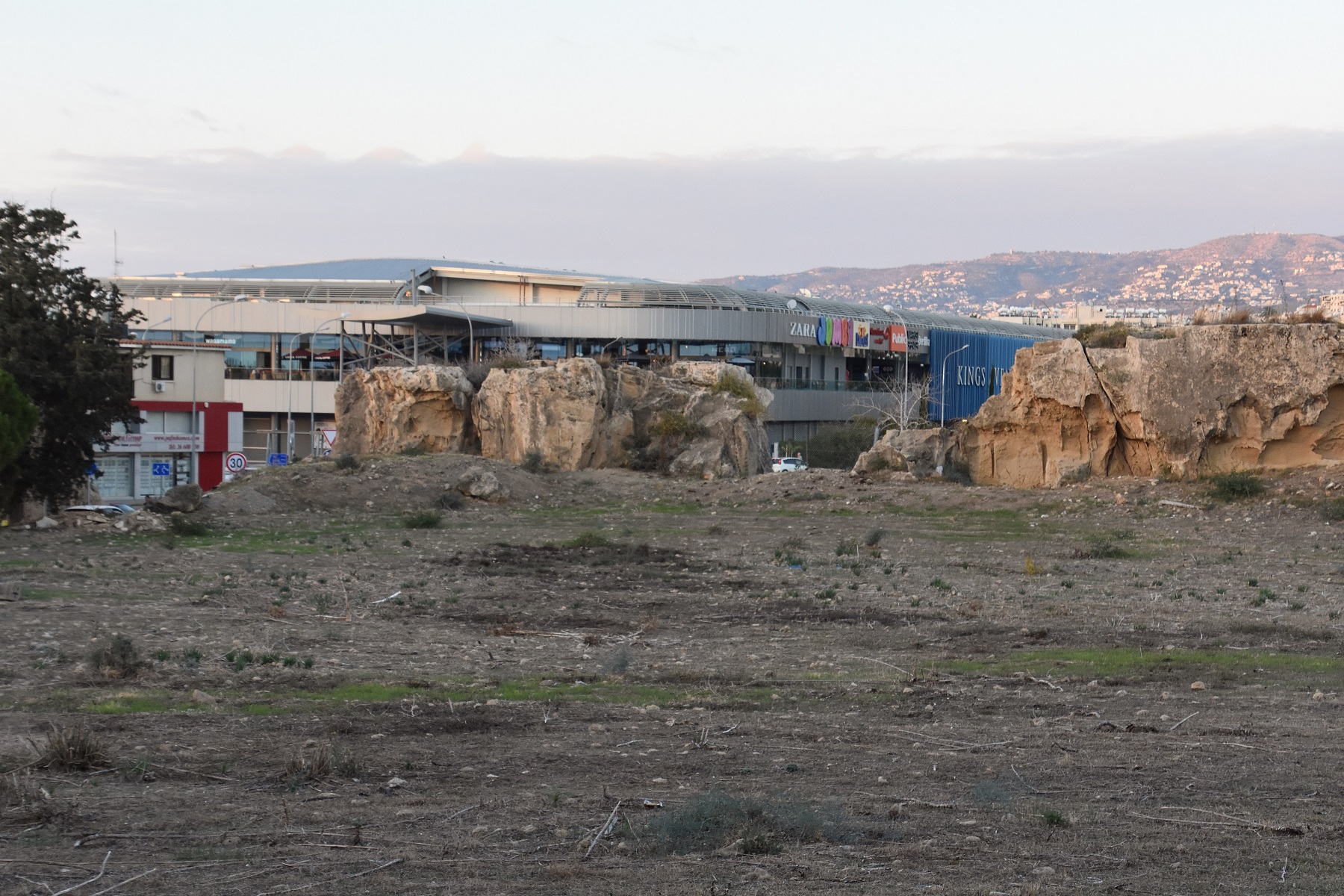
We were on our way back from the Capital Coast Resort & Spa and had a spare couple of hours before dinner time. So we decided to park up and have a quick look in these caves. I expected it to take all of two minutes. But what we found astounded me.
These were no mere caves, but massive caverns! Some had crumbling steps that took you down into them. The first one we entered appeared to be at the bottom of someone’s garden in the side street where we parked the car.
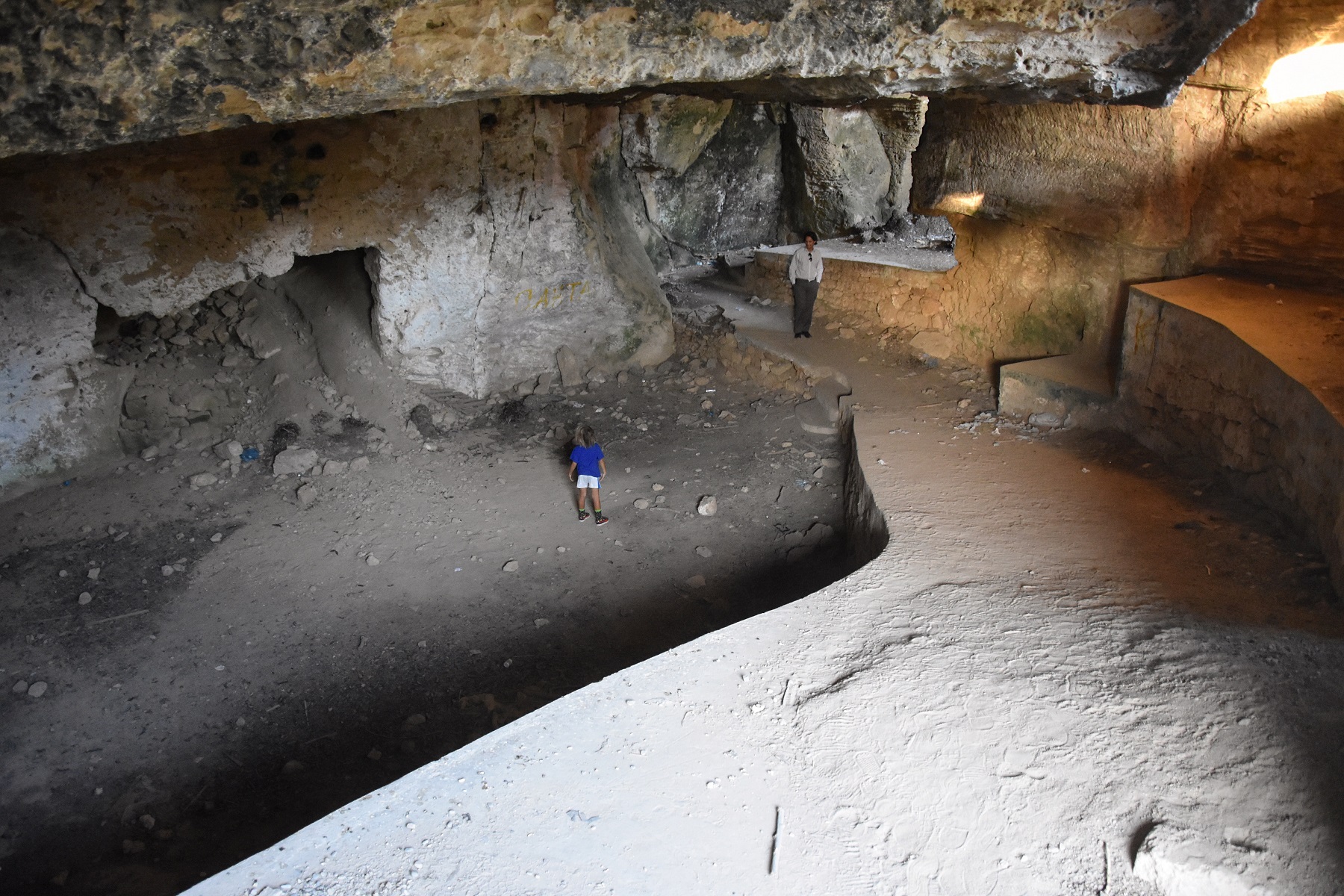
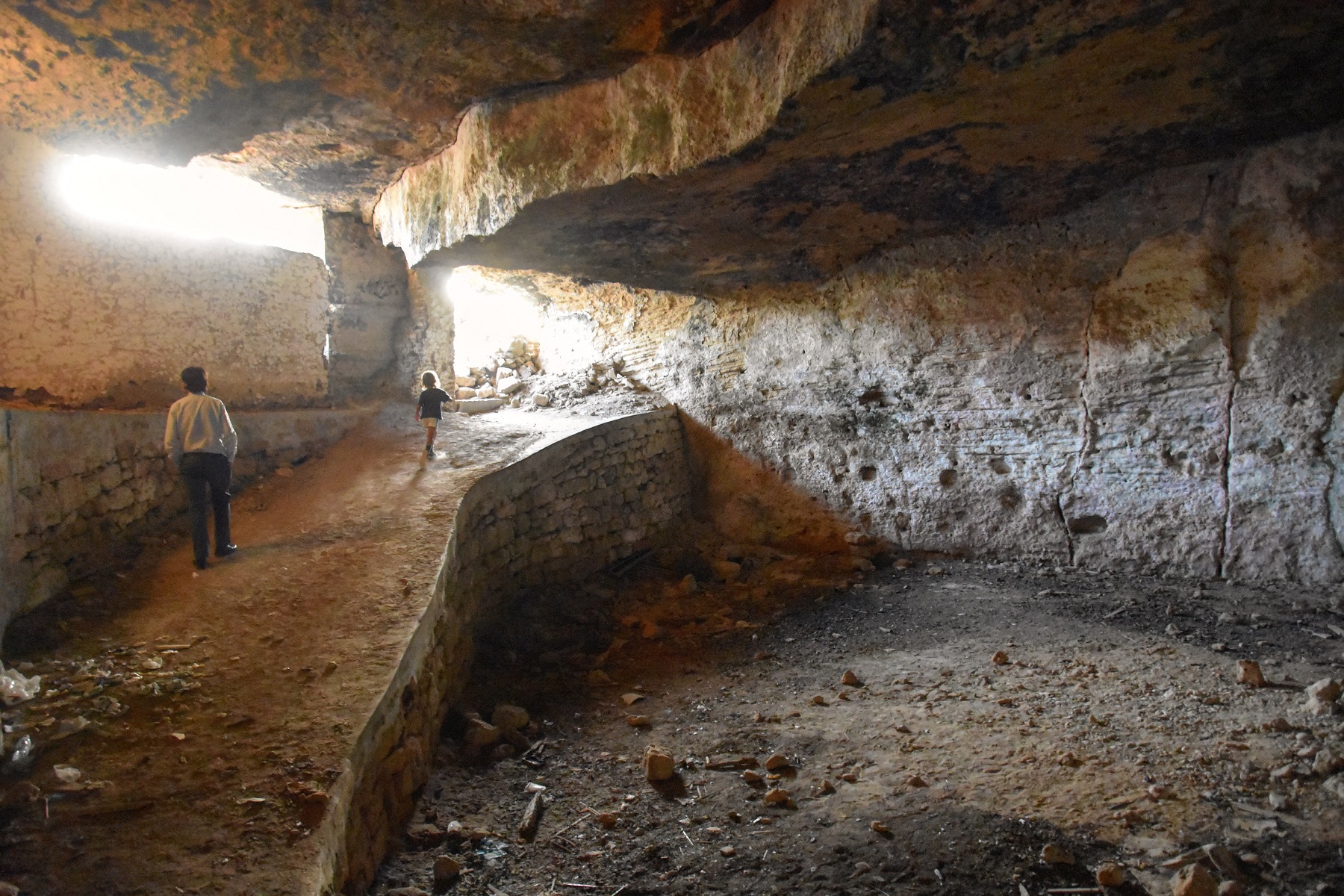
The cave next door had steps at the far end that took us up onto the top of Fabrika Hill.
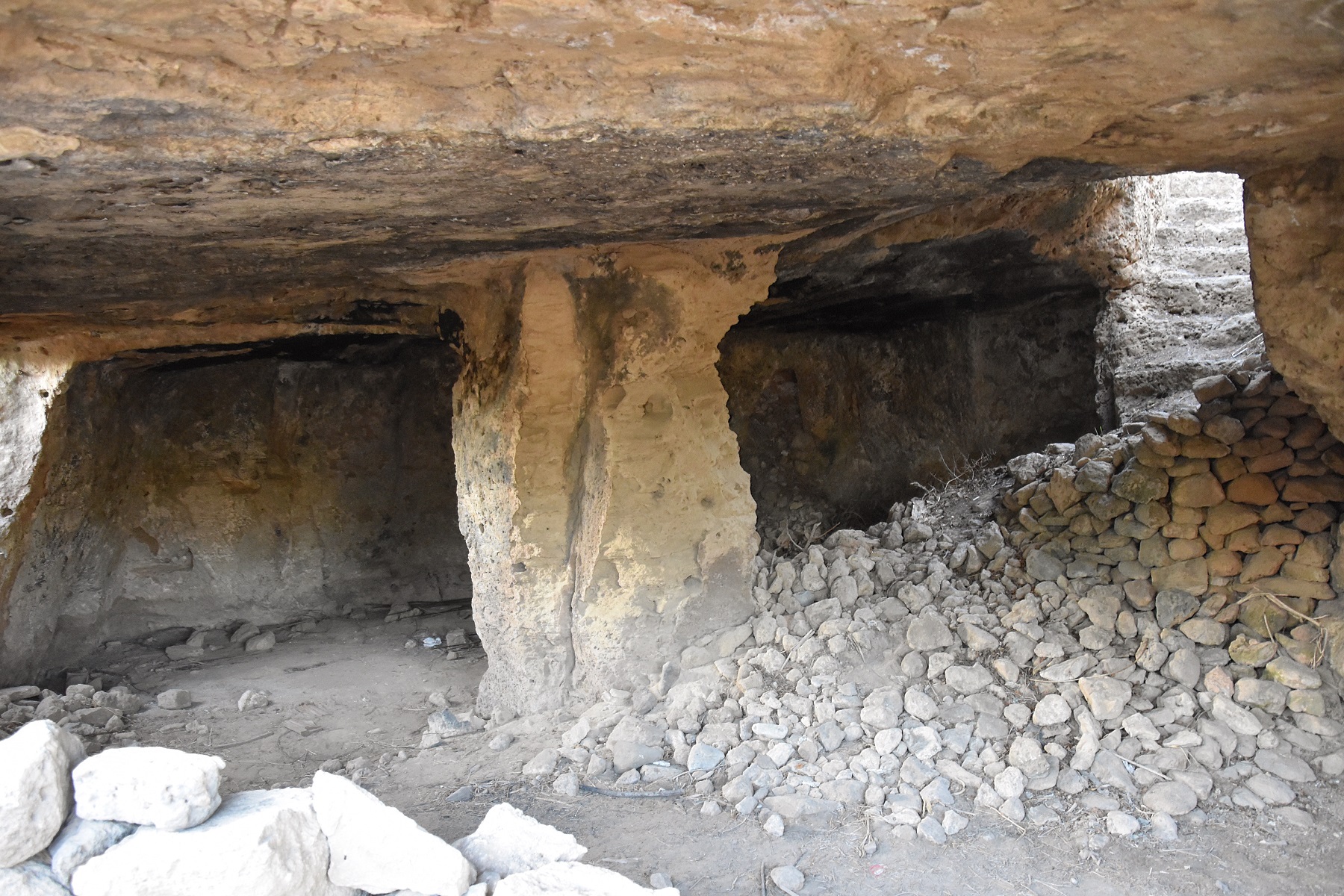
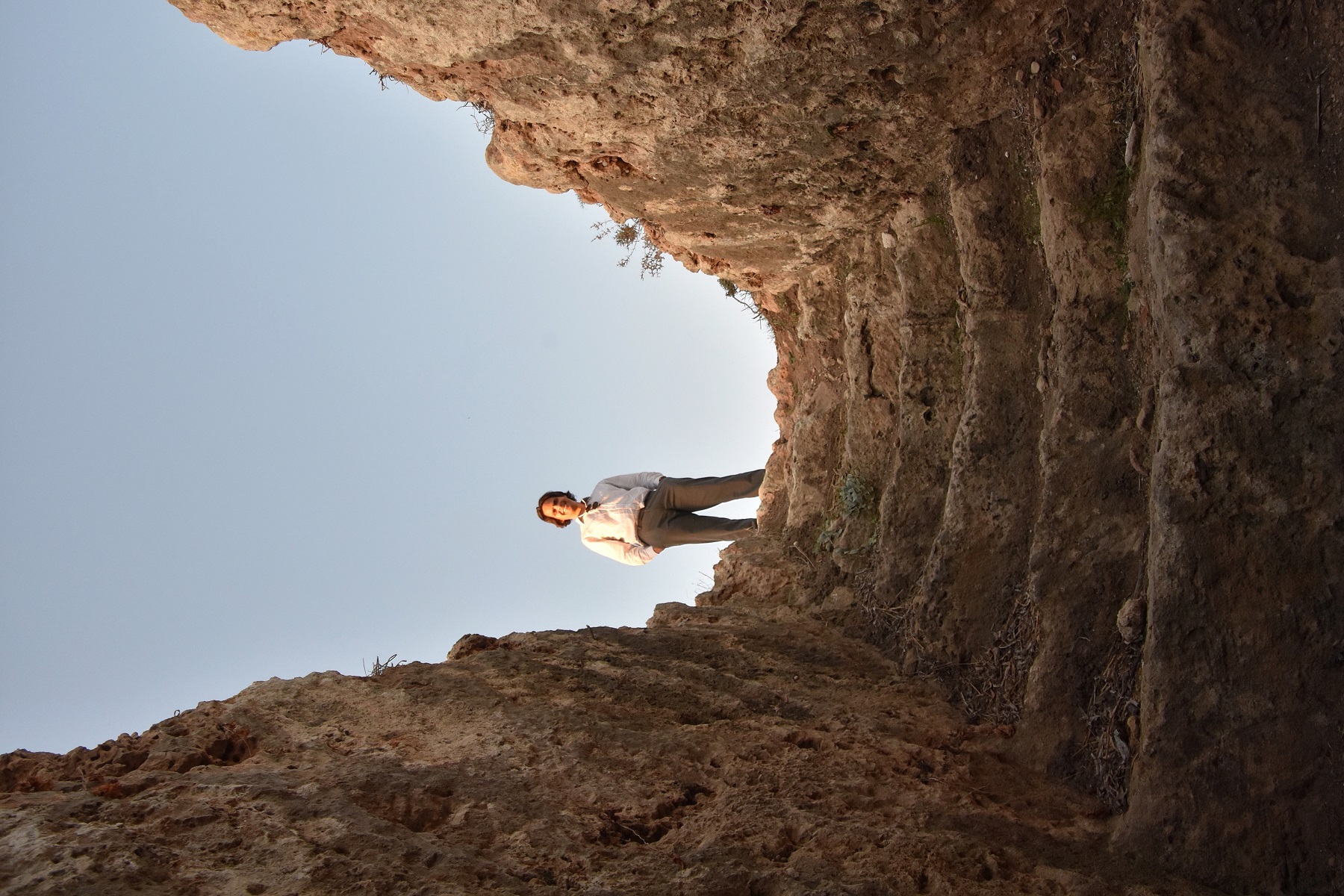
On top of Fabrika Hill were the remains of a Hellenistic building. There isn’t much of the building to see, but the most impressive thing was a pebble mosaic floor beneath a protective shelter – the largest of its kind in Cyprus, according to the sign. Apparently it used to decorate a banquet room.
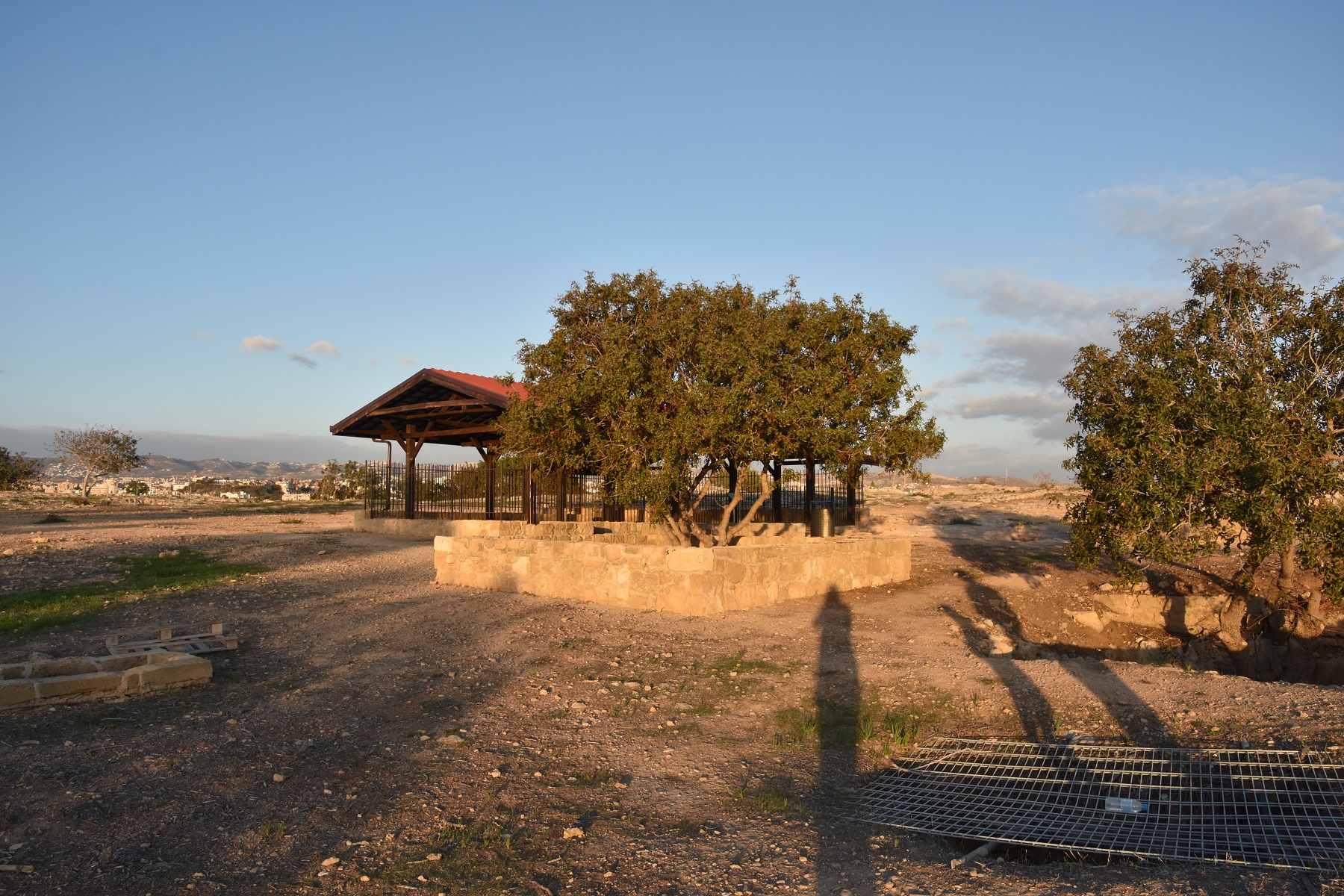
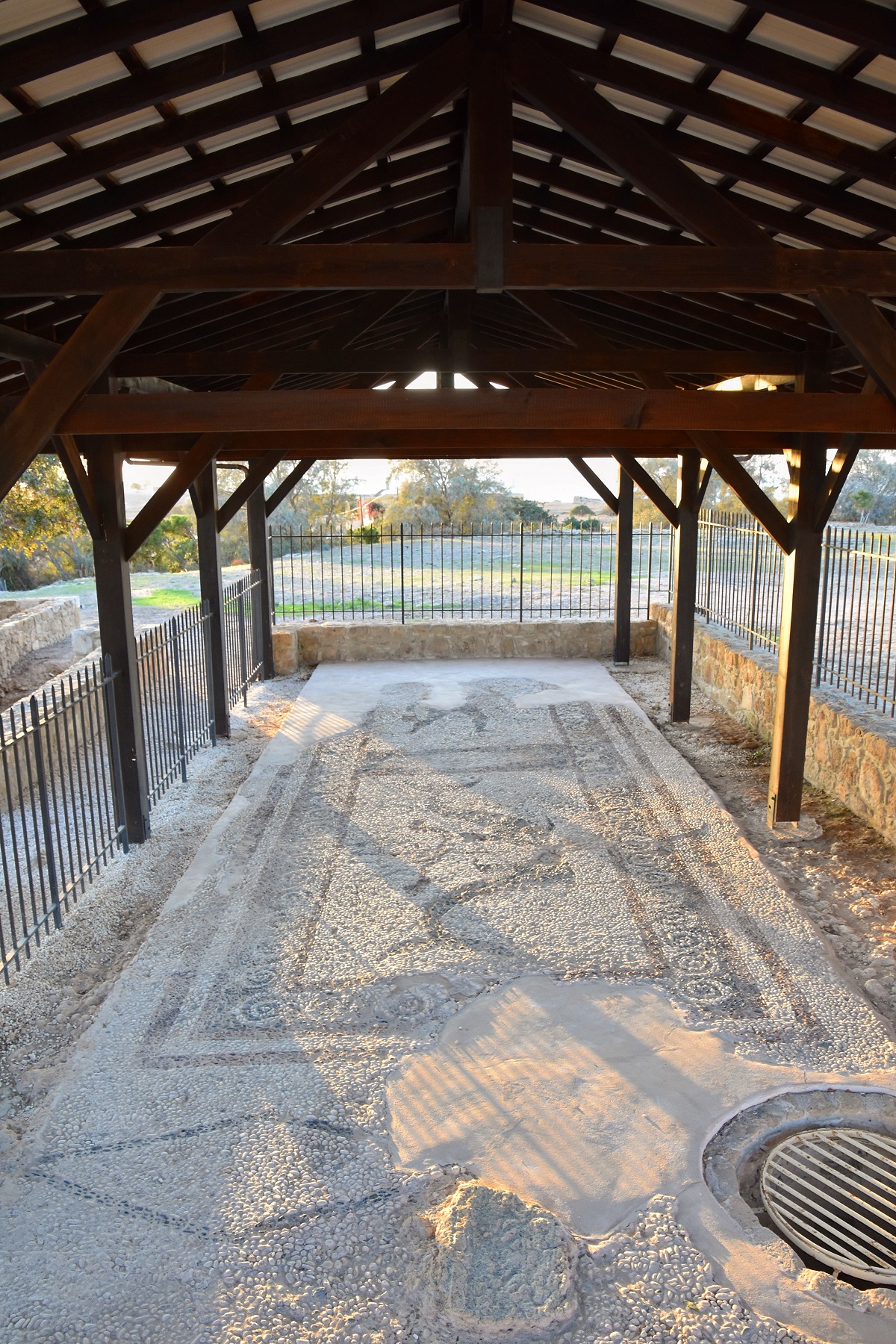
To the side of the mosaic is a triangular hole that looks down into an underground room. Nearby steps take you underground to a tunnel. To the left, the tunnel opens into a big room. If you walk down the tunnel to the right, it takes you to the room beneath the triangular hole. There were other nooks and crannies that we could have gone into, but they didn’t look as safe.
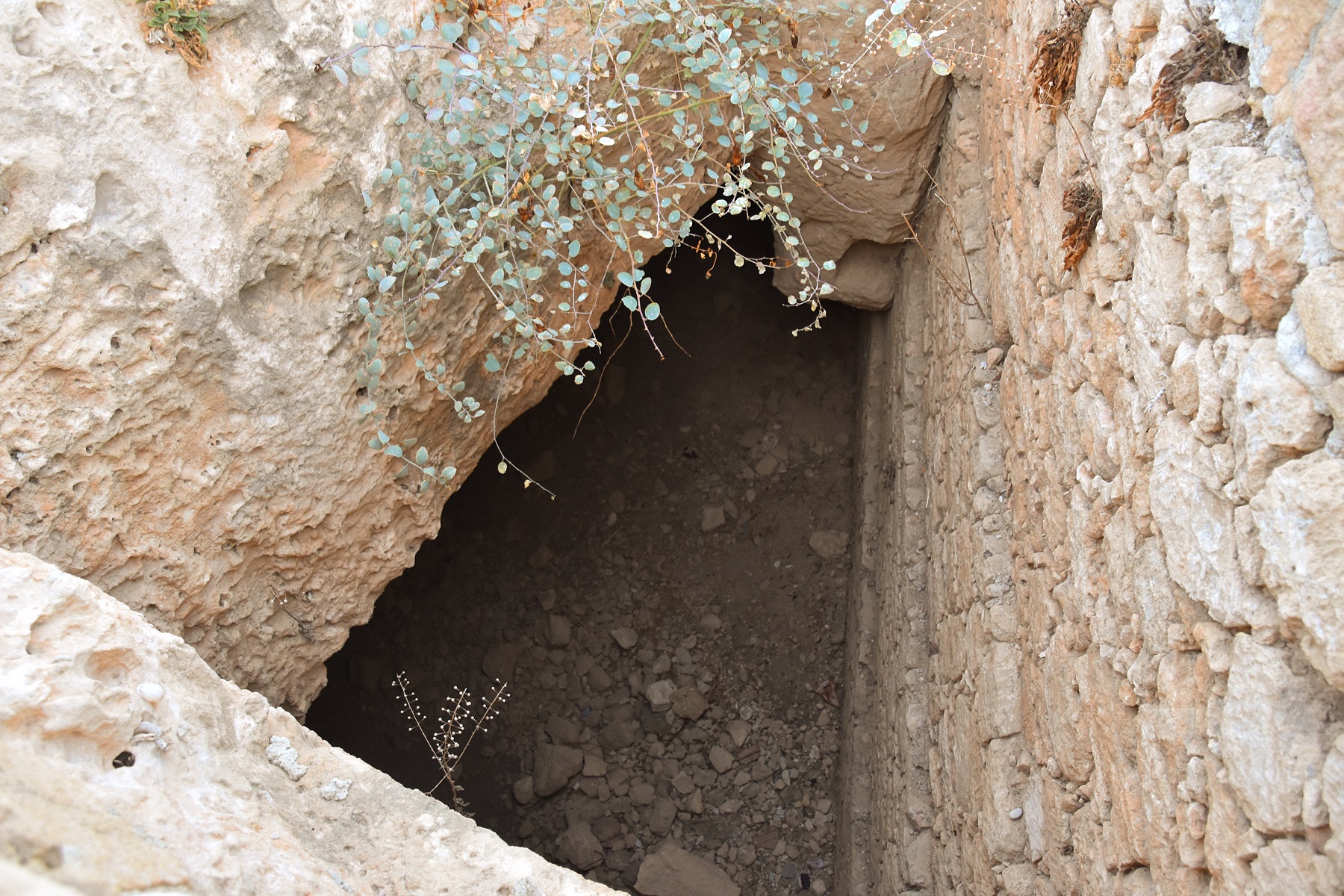
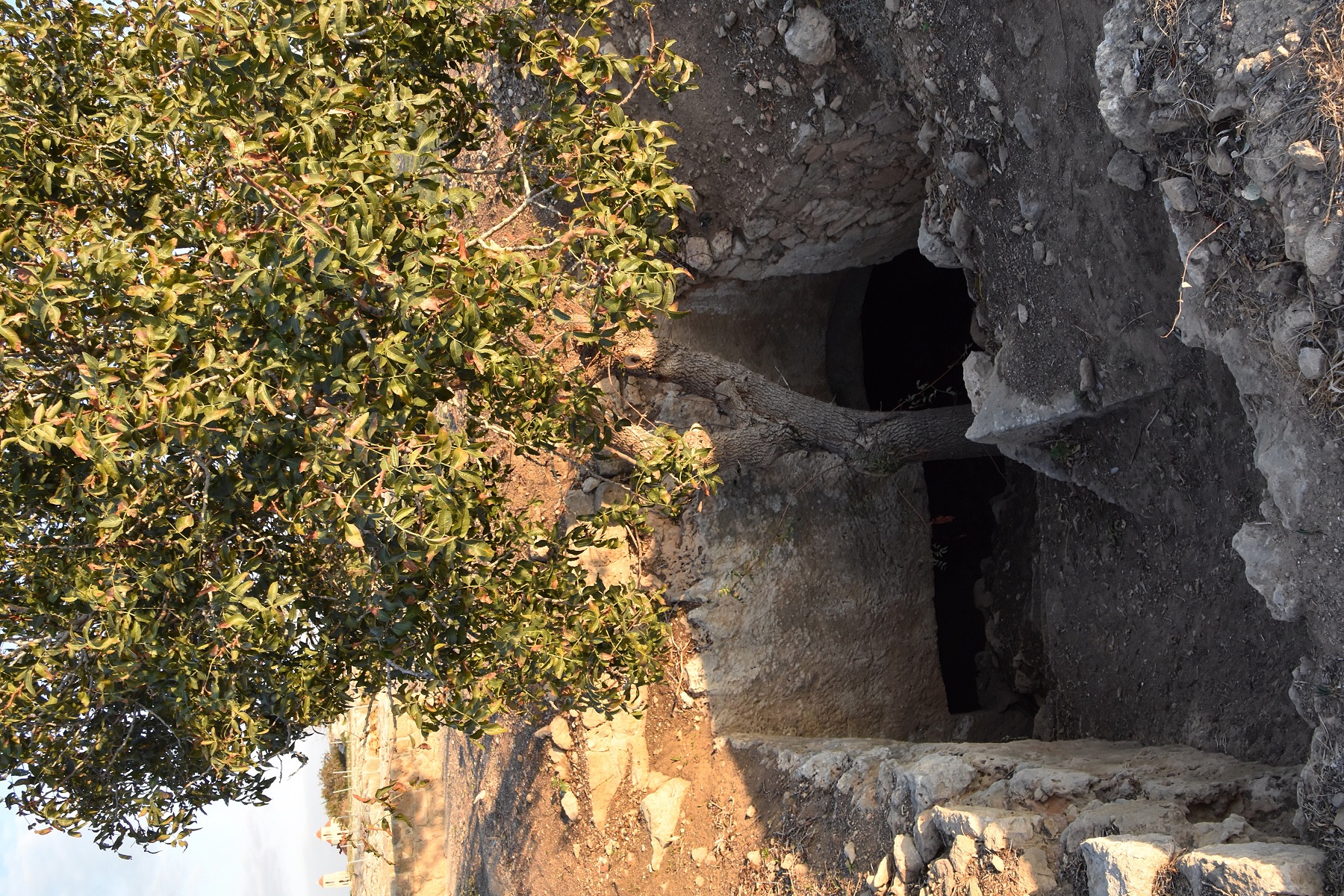
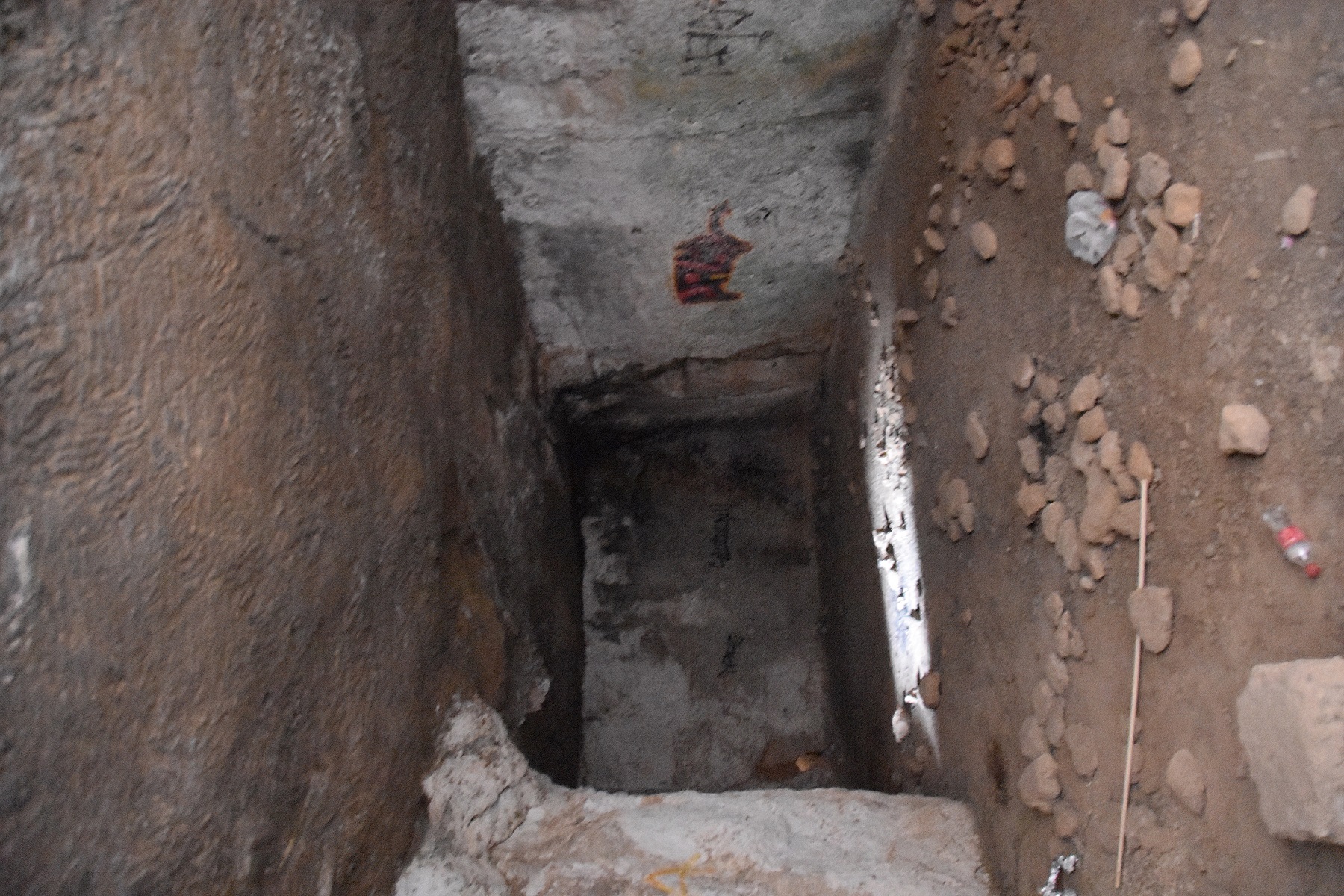
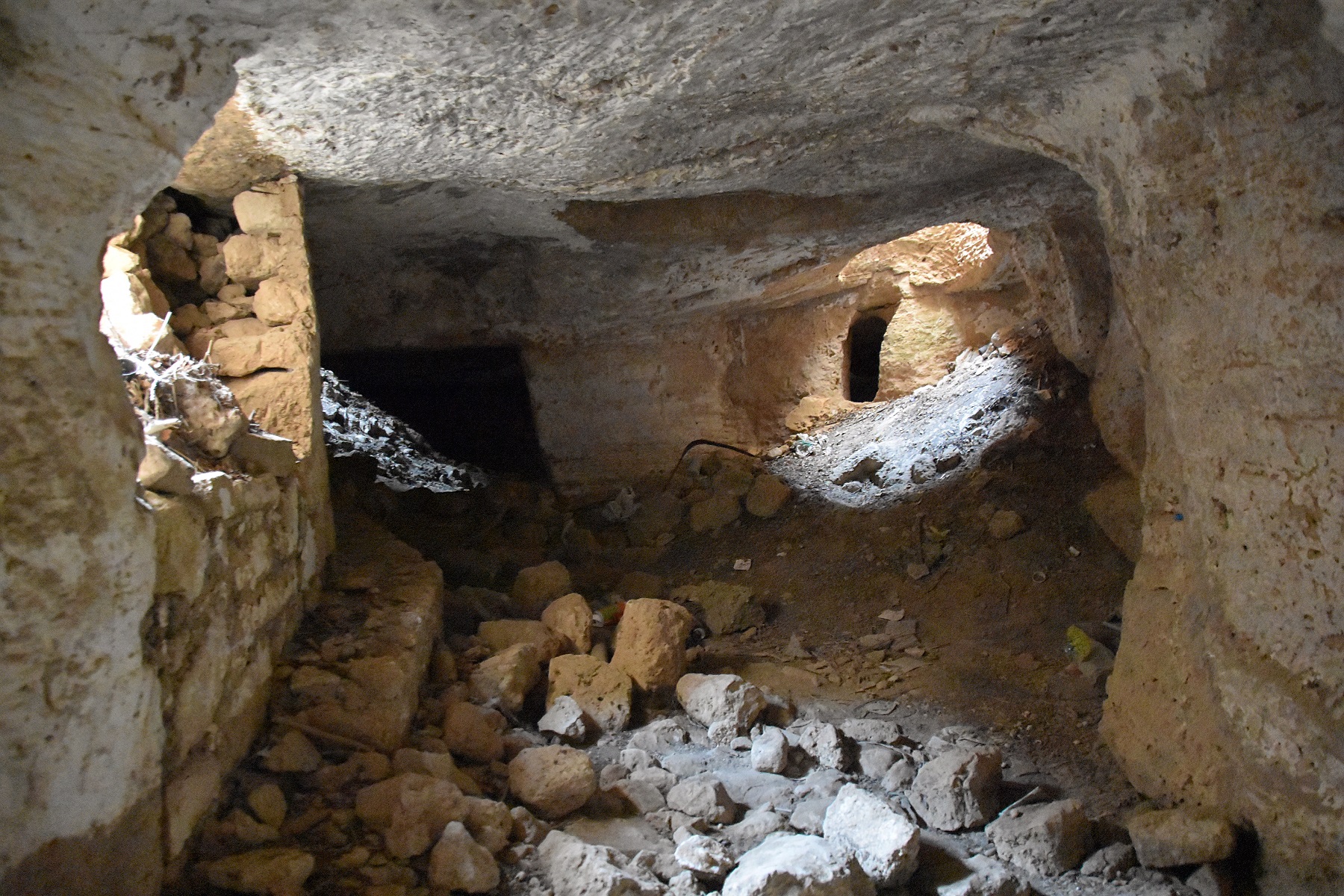
More nooks and crannies
Back on top of the hill, I spotted another dark entrance leading downwards. It looked like an entrance to a tomb, like at Tomb of the Kings. It took us to a large room. At the end of the room, a doorway led to some steps. To one side of the steps was another long chamber.
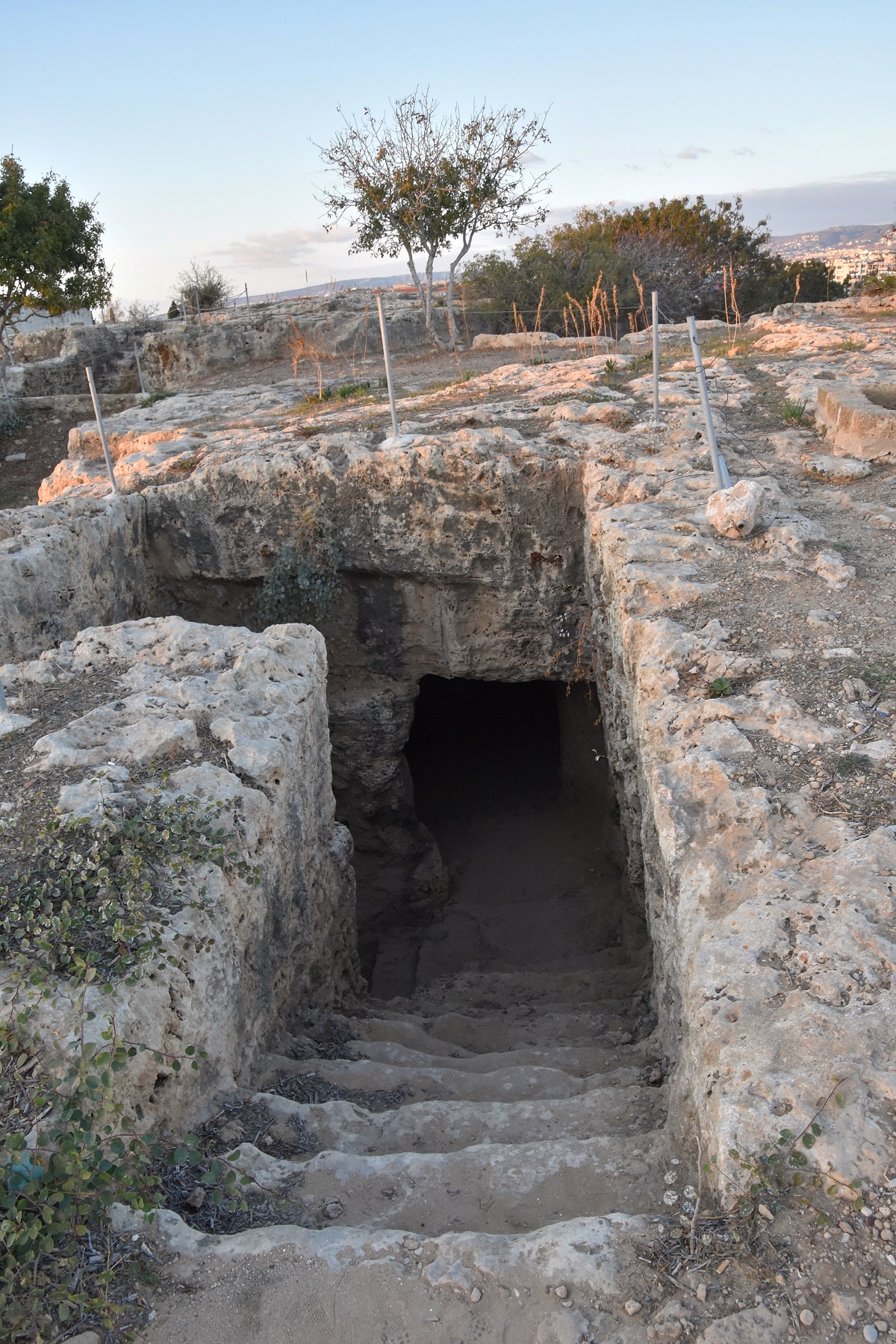
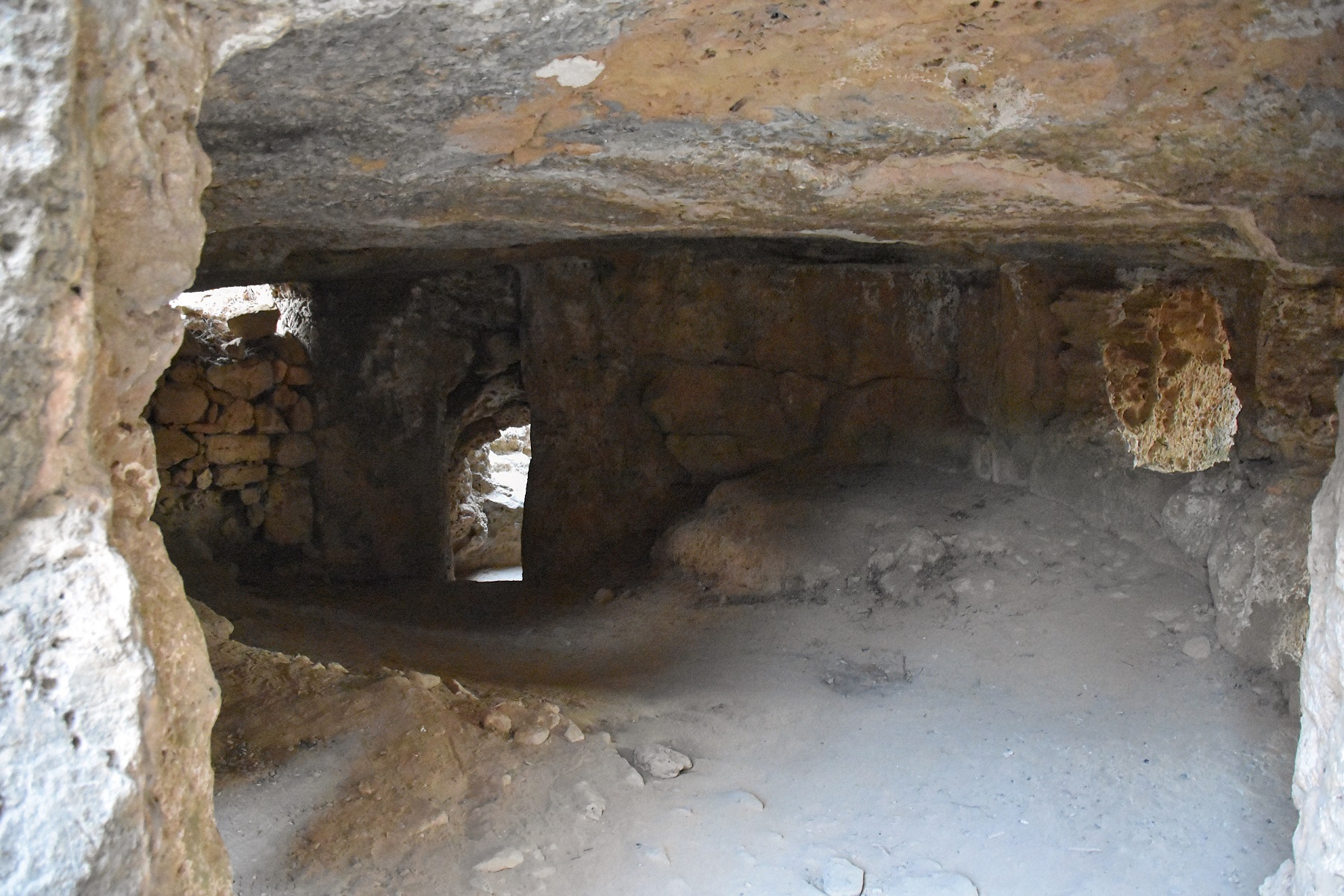
The steps took us further downwards and opened into a magnificent cavern with a natural rock pillar in the middle of it. I literally couldn’t believe what I was seeing! All this from just checking out one cave entrance.
There was a large entrance to this cavern on the opposite side – that was the entrance I’d driven past all those times.
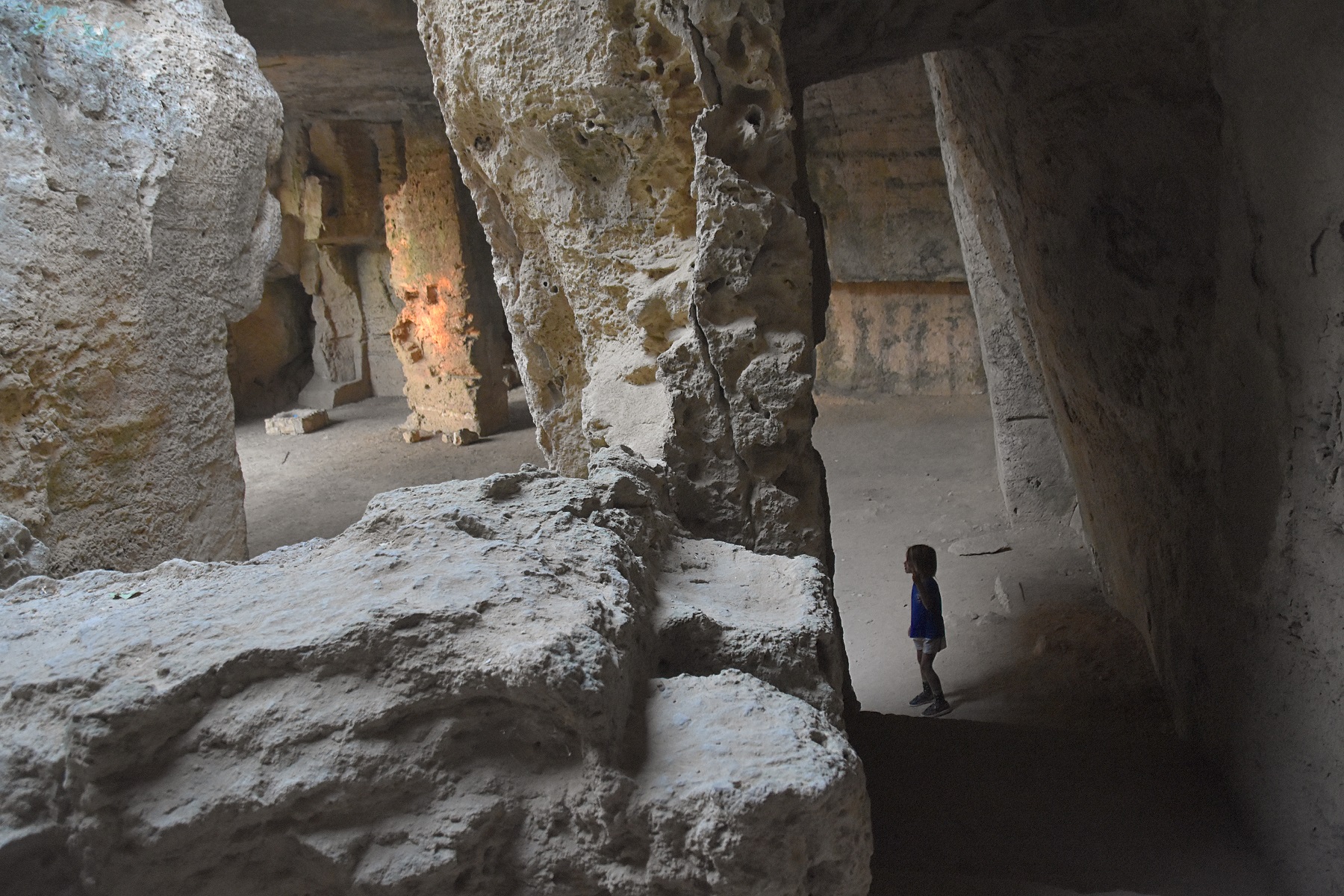
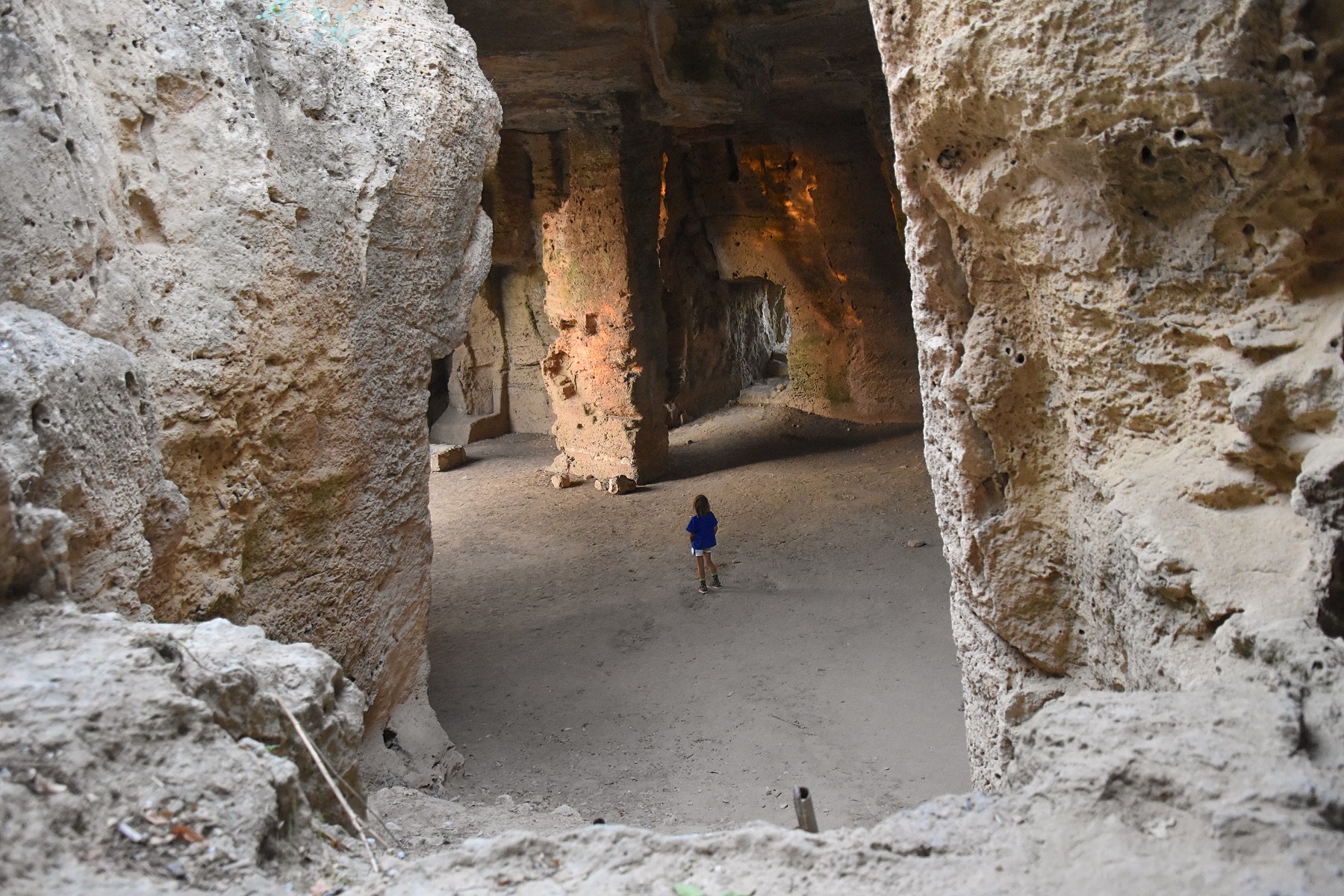
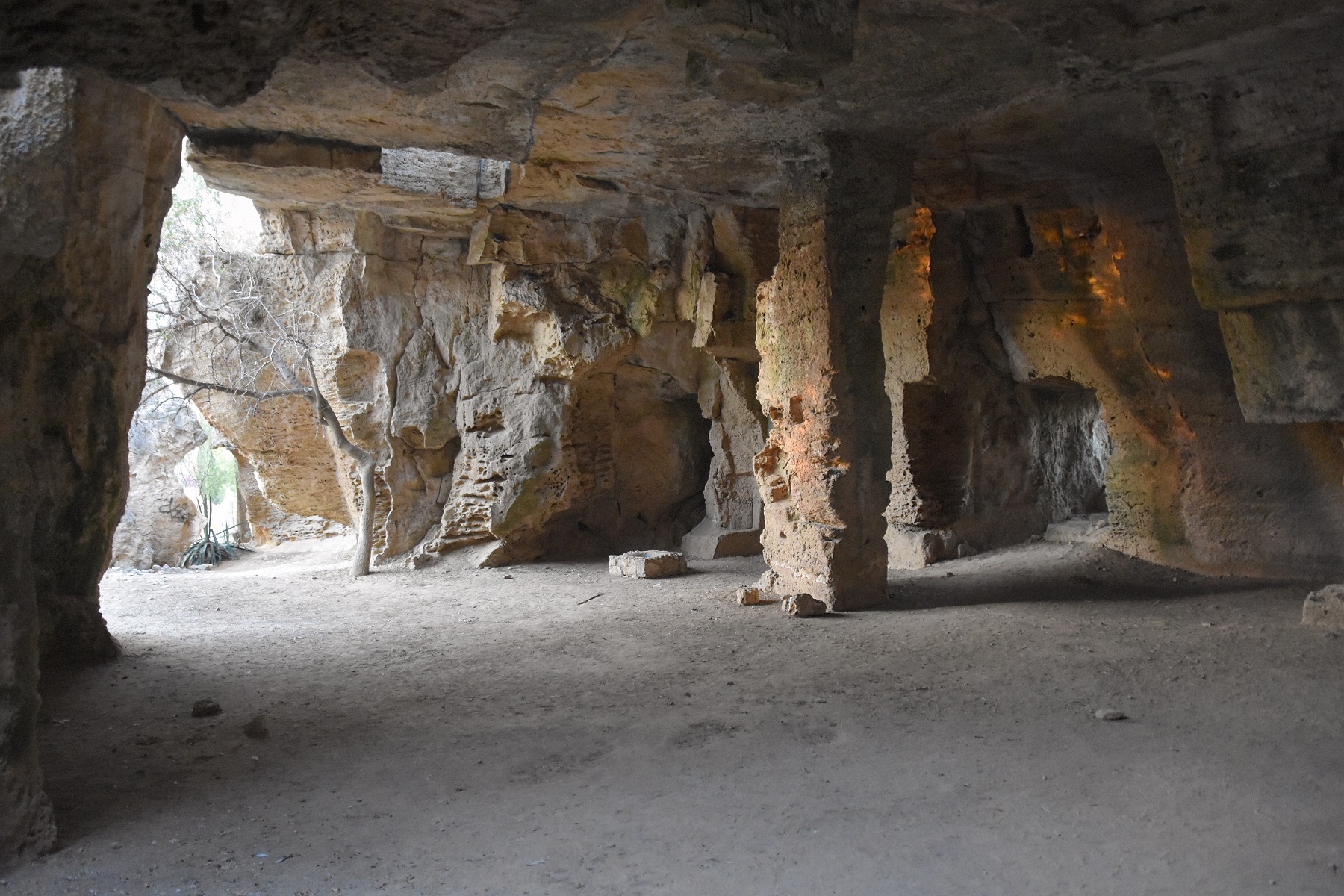
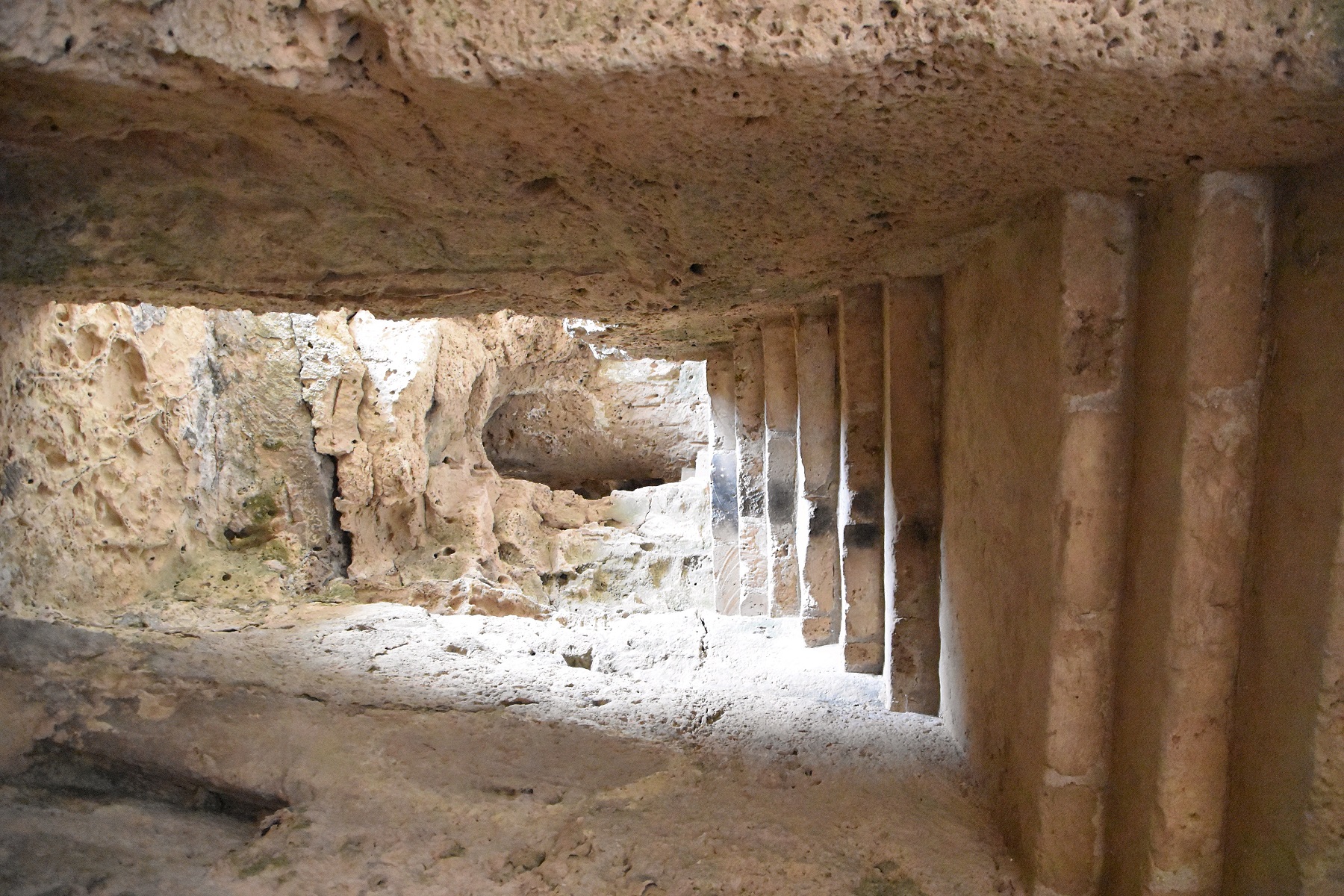
We retraced our steps to explore the side chamber. This led us to the opposite side of a Fabrika Hill. A path ran along the hill, past more rooms and what looked like the old city walls. There were fenced-off excavated ruins of buildings at the far end of the hill and a rounded viewing platform that provided a great view of Kato Paphos stretched out below.
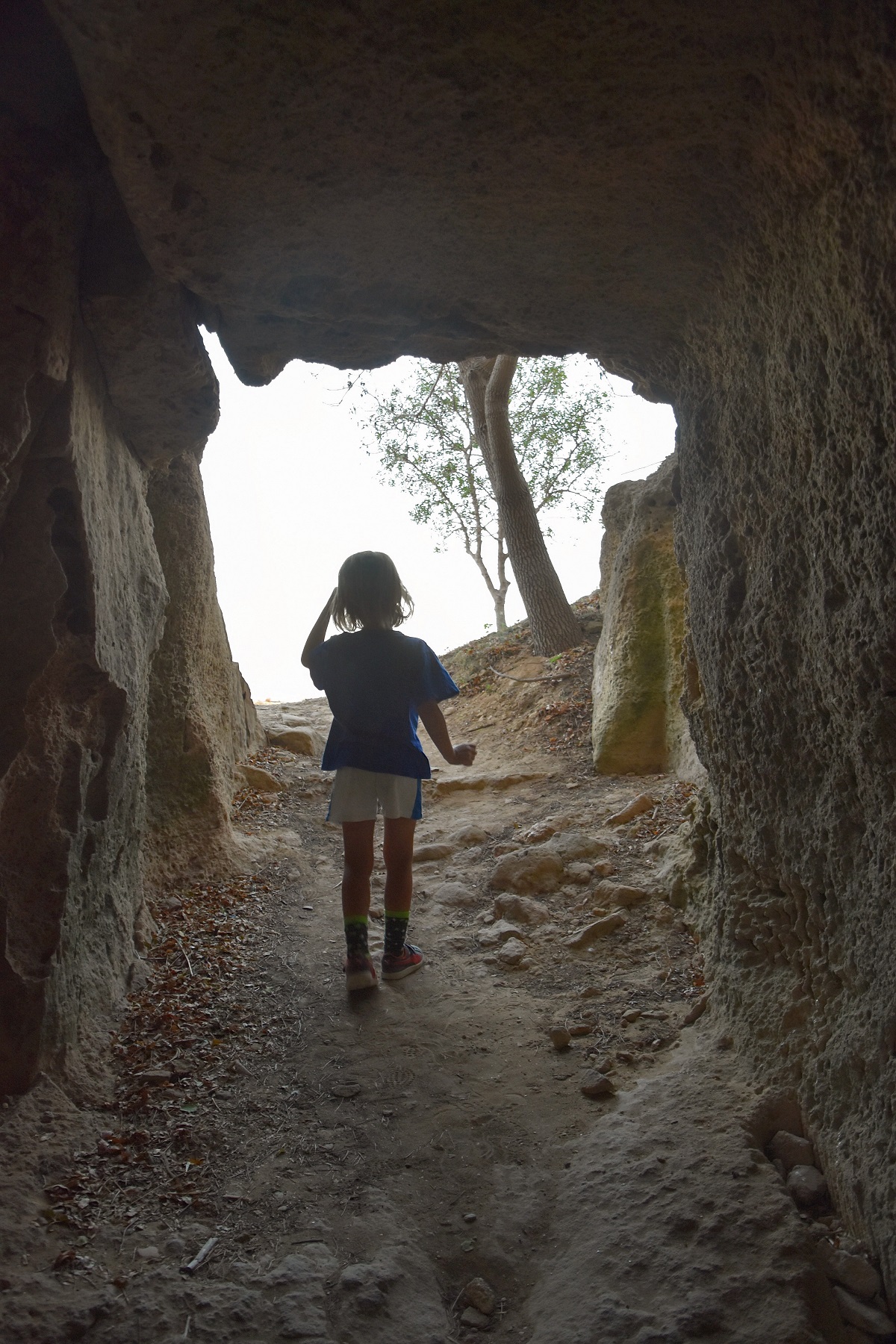
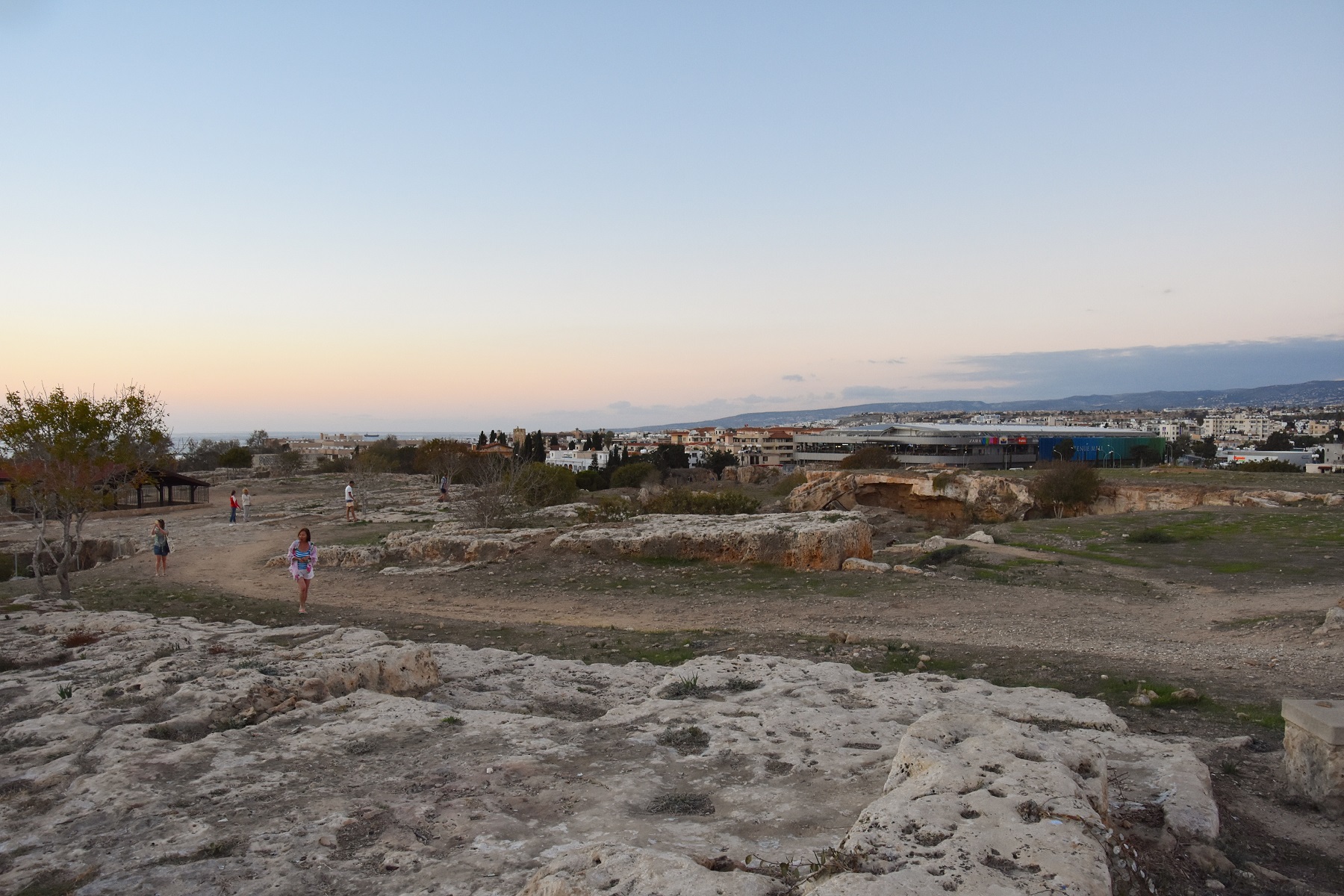
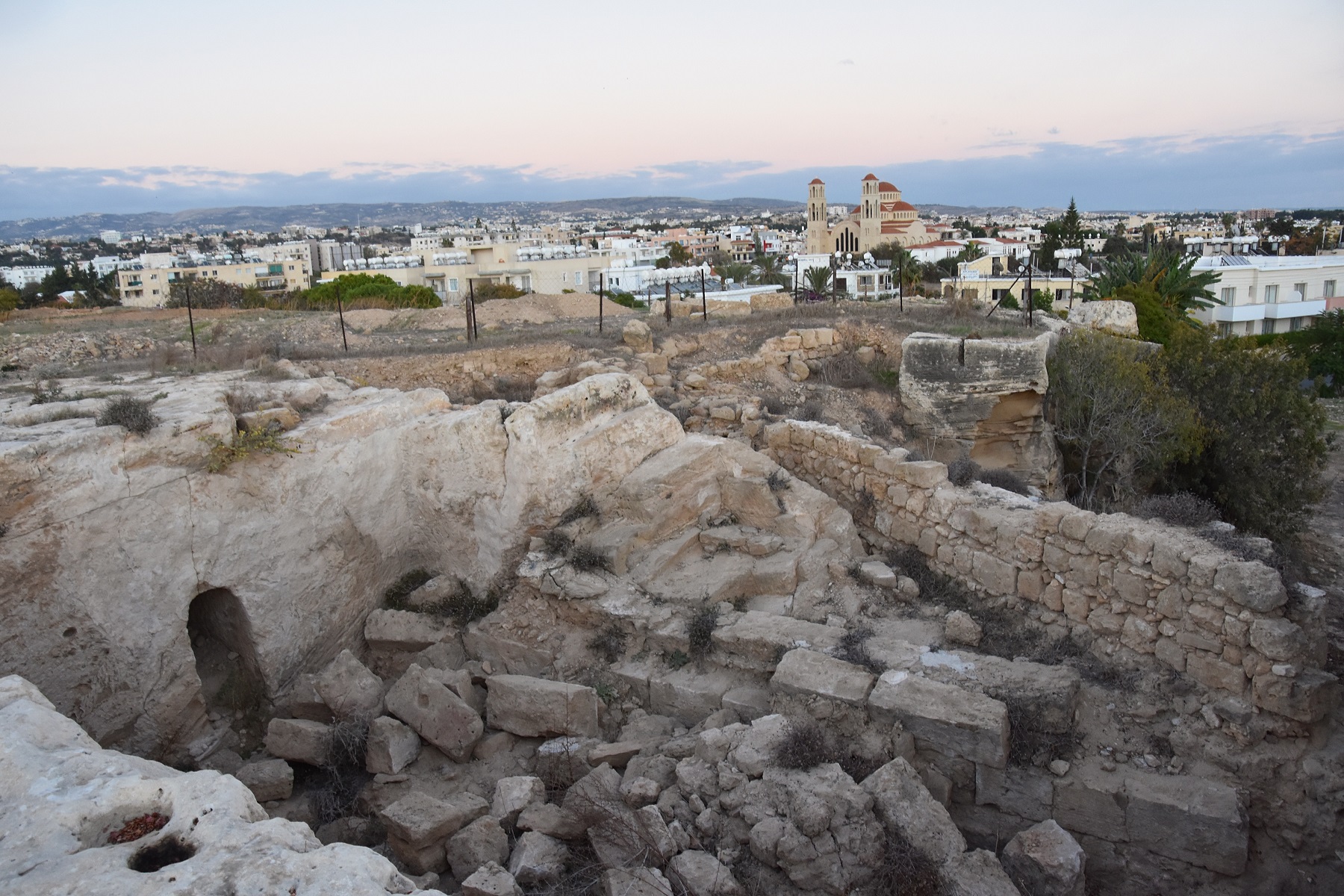
As I stood there, watching the sun set, I happened to glance down to my left. And there was a bloody great amphitheatre at the bottom of the hill!! Fabrika Hill just kept giving. The amphitheatre wasn’t in the restored state of the one in Kourion or Salamis, this one was clearly still being excavated.
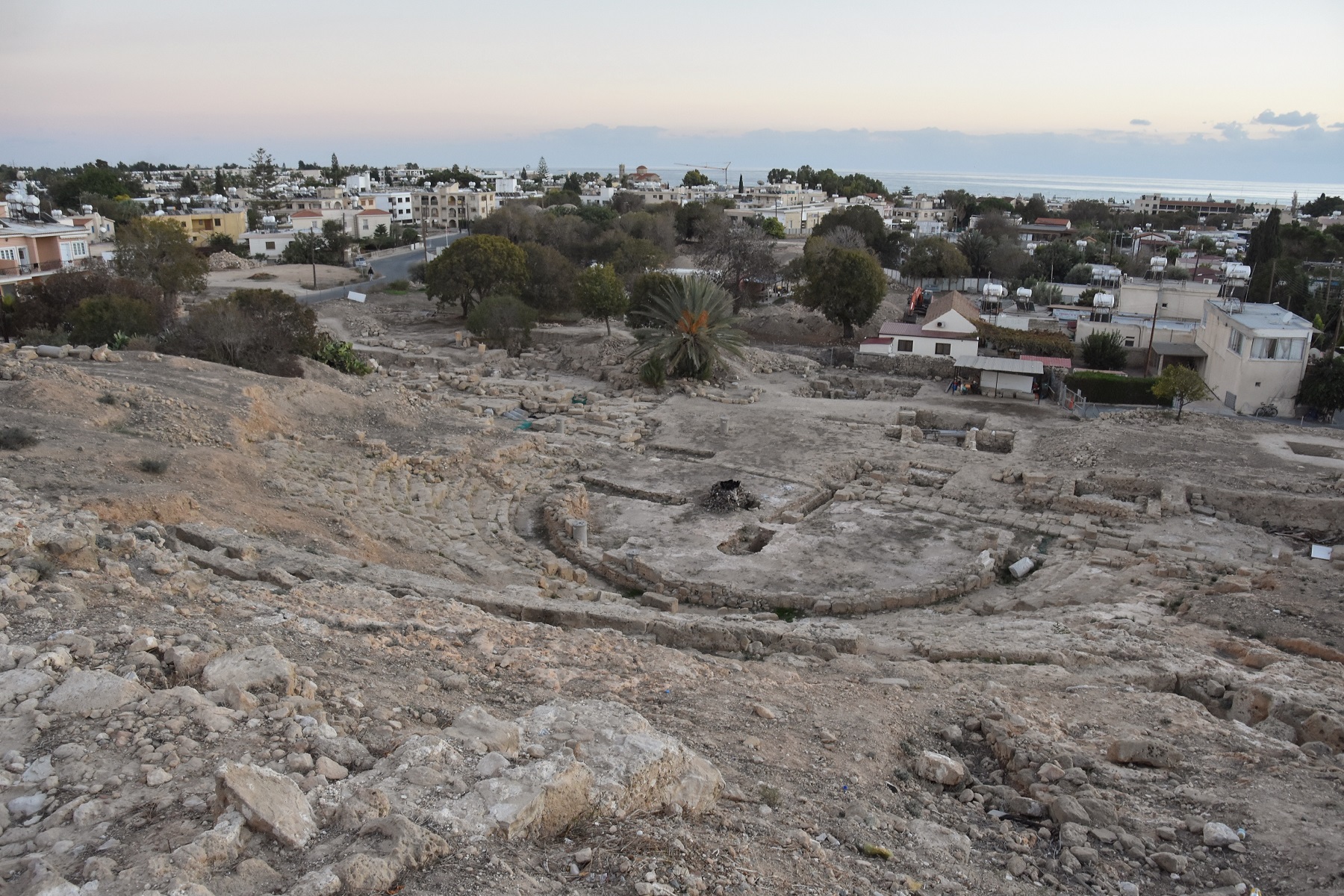
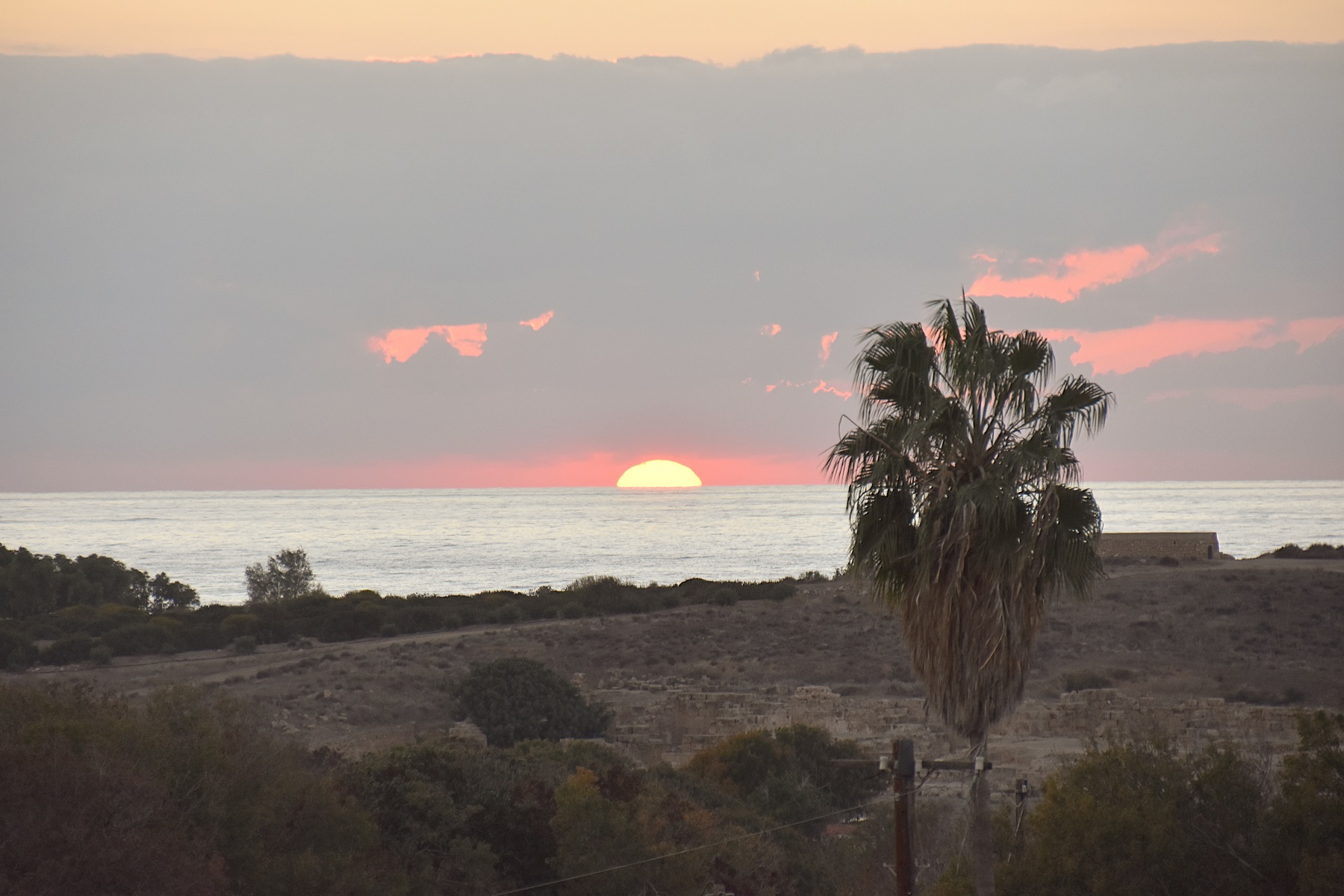
We were rapidly losing the light and so we walked back down steps and through caves to the car. When we got home, I Googled ‘Paphos catacombs’ to find out more about what we’d seen. The search only turned up results about the Ayia Solomoni Catacombs next door (also known as the St. Solomon’s Catacombs) – the topic for another blog post, but WELL worth a visit. I couldn’t find anything about the network of caves we’d just found. I phoned my Archaeology teacher and finally I had a name – Fabrika Hill. Now my Google search was a bit more productive.
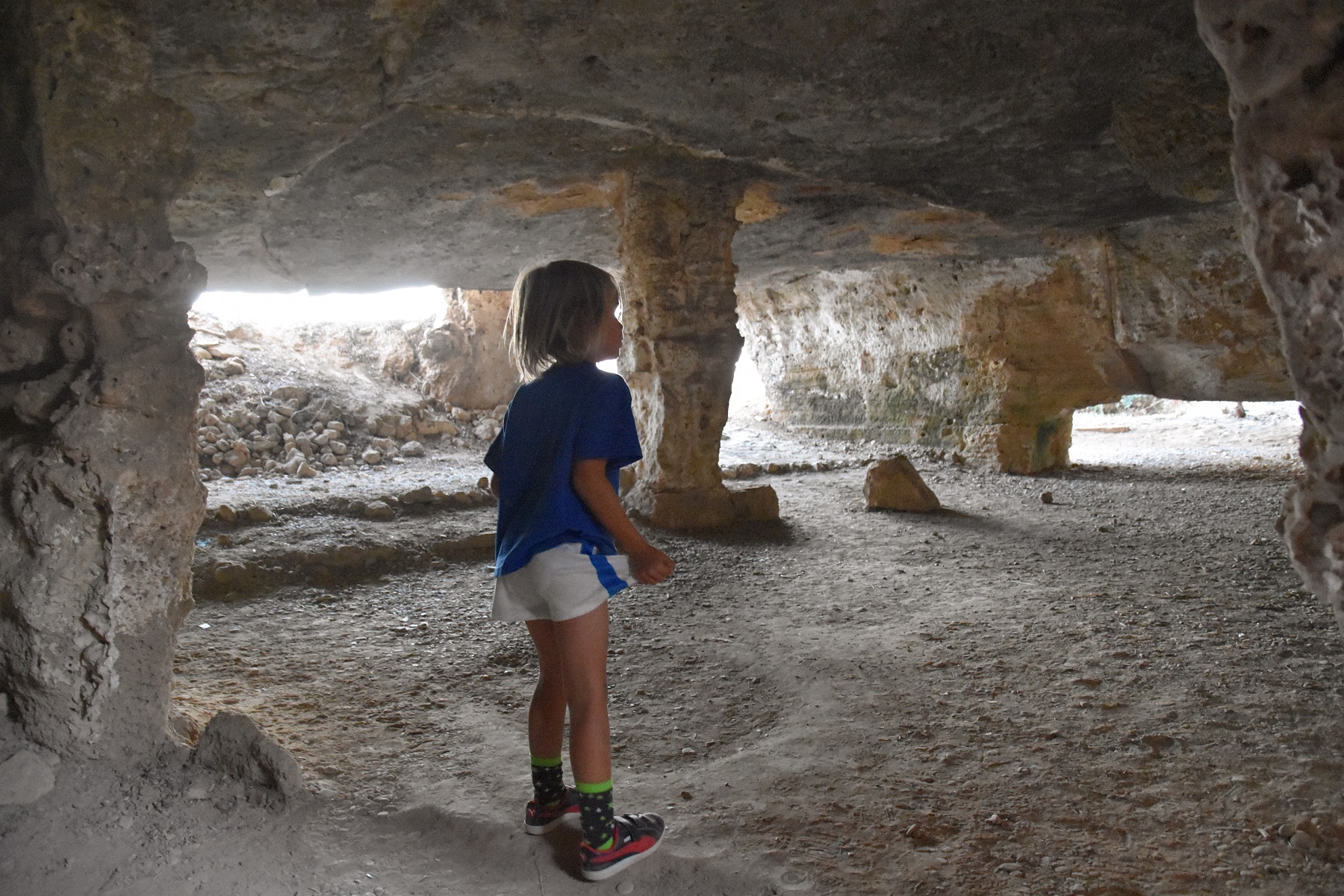
Not a huge amount is known about Fabrika Hill, but it sits in the north-eastern corner of the old city of Nea Paphos which was built in the Hellenic era around the 4th century BC and was the capital of Cyprus. The caverns are thought to be from Hellenistic quarrying and were later used to live in and keep animals in, such as camels.
The ancient theatre was built around 300BC and could seat 8000 people. It is thought to be the oldest theatre in Cyprus.
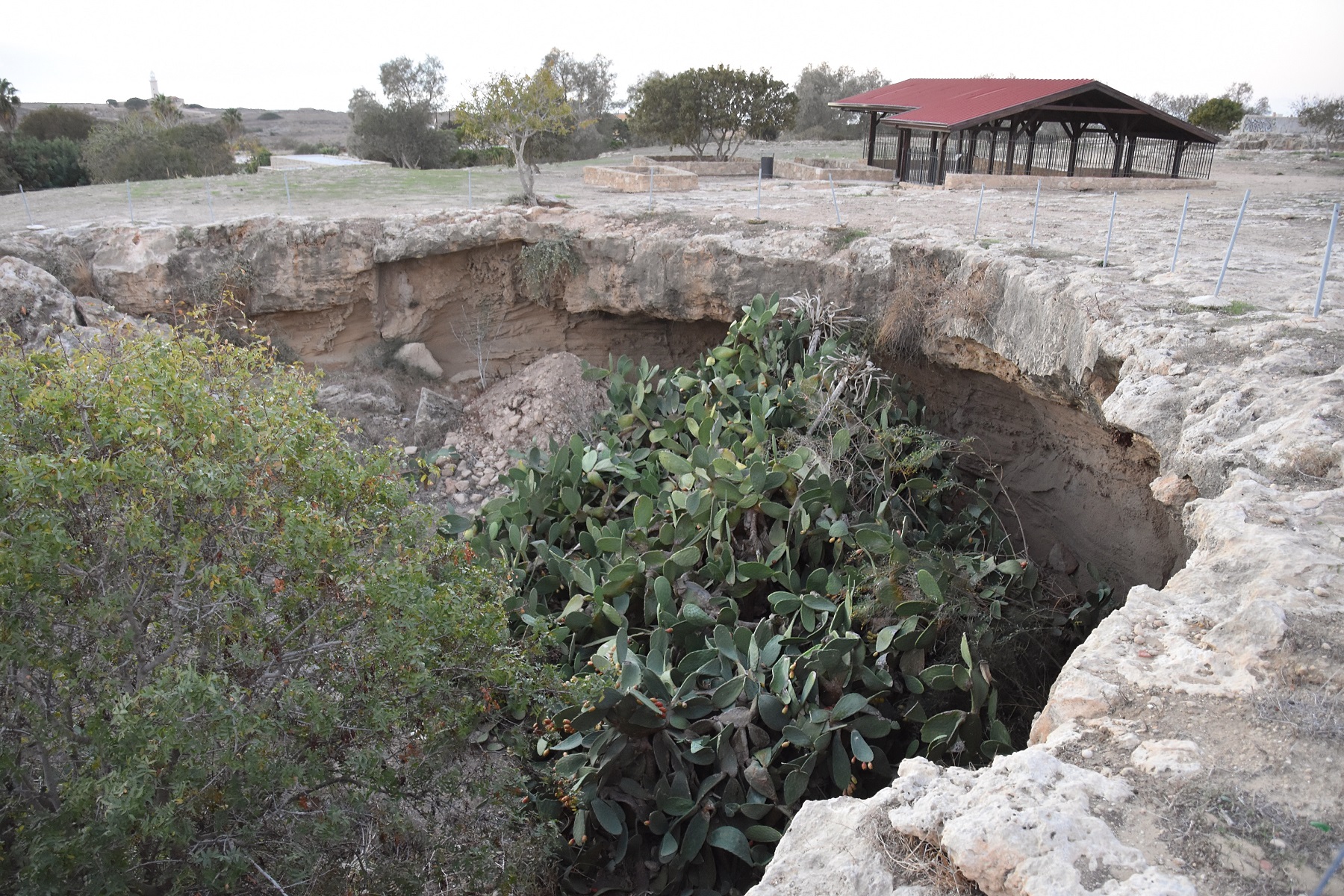
Fabrika Hill exemplifies one of the reasons why Cyprus is so special. Because an ordinary car journey back home from a hotel can turn into finding something quite remarkable. You just never know what you might stubble across in this country -and that’s why I love it.
Very well written with thorough descriptions.
Enjoyable and interesting.reading and very good photos too.
What a beautiful finding and a very exciting site is yours. Thanks for sharing , photos and enthousiasm.
I’ll follow you everywhere ( do not mind, I am an old lady) ….
Wow, what a great find! I’ve not spent much time on the Paphos side of the island unless we are working over there but we’ve driven down that road many times and I had no idea they were there. My boys (and me!) would love exploring them. Thank you for sharing.
The caves of Fabrica hill were used as military camps during World War 2. The pebbles on the floors were introduced that time to avoid the dust. We used to play in these caves when we were children, searching for the devils, as old people threatened us that the caves were full of caves. I live in Athens, but every time I go to Paphos I pay a visit to Fabrica.
Very interesting presentation and photos. Thanks.
5 Comments